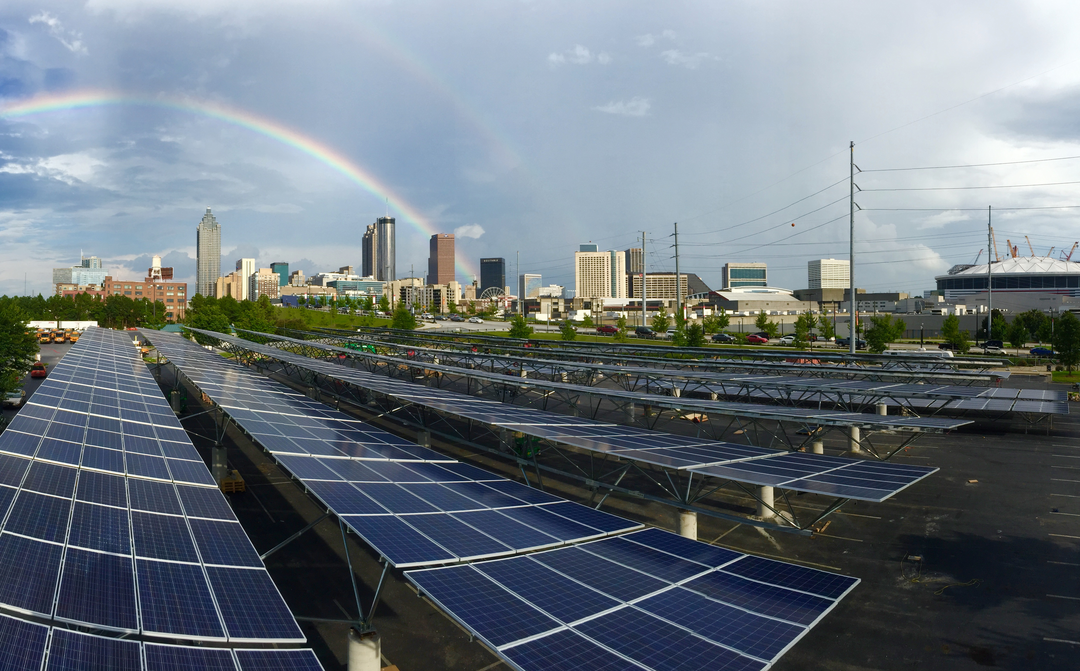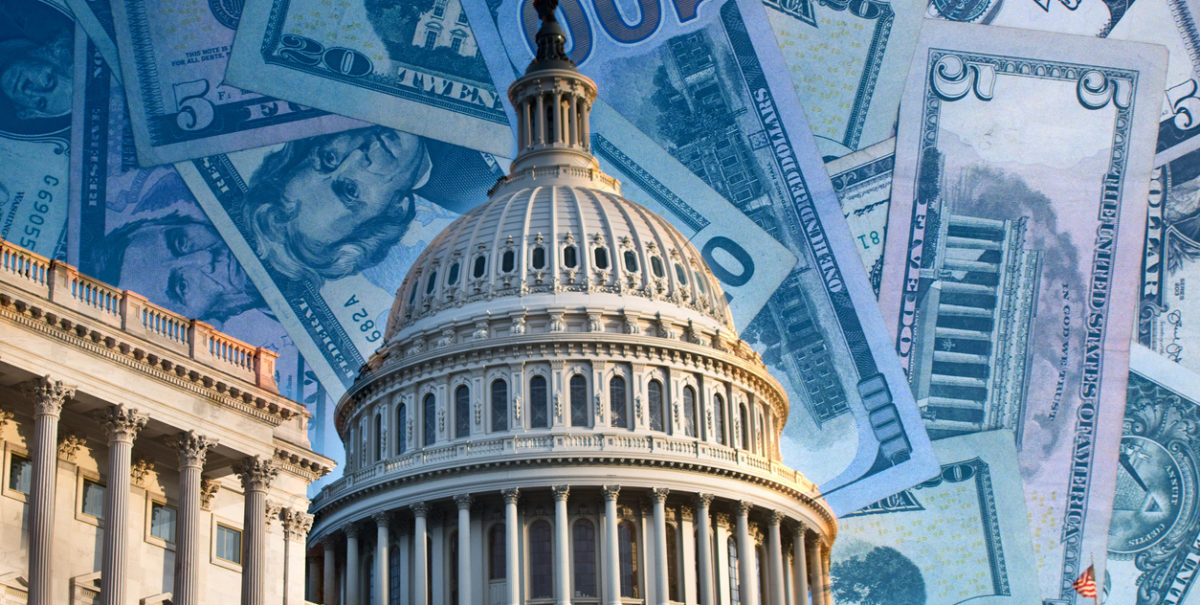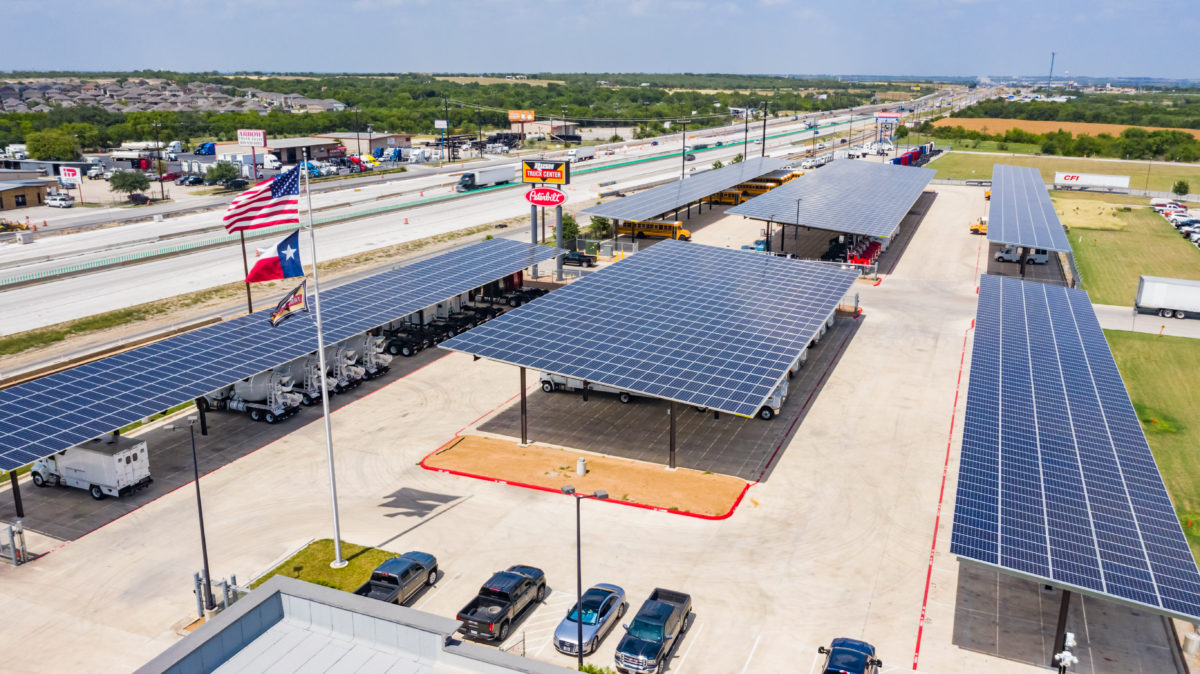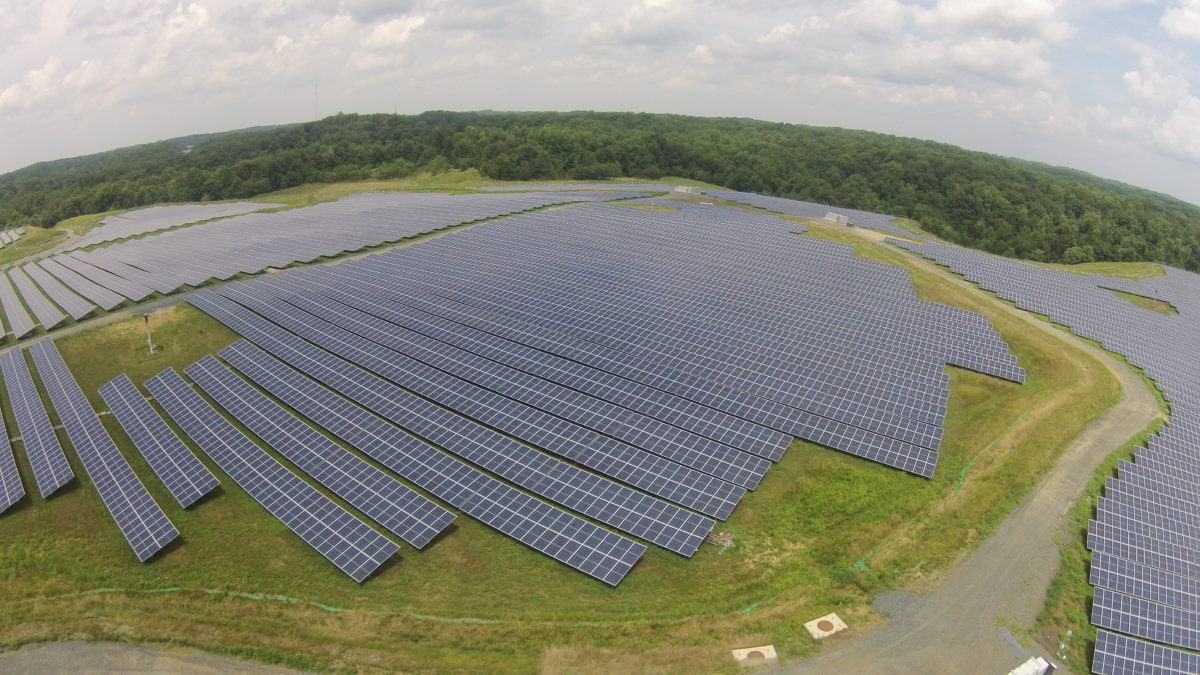This resource serves as a guidebook for local governments looking to maximize the clean energy incentives and opportunities provided by the Inflation Reduction Act.
50-State Disadvantaged Communities Report

This report provides government decision makers with the necessary definitions and available mapping to allocate money to critical infrastructure upgrades and climate resilience projects needed to protect vulnerable communities.
The (Blue) Sky’s the Limit: Explore New Opportunities for State-Led Energy Leadership

This webinar convened U.S. state practitioners for a learning opportunity focused on how the State Energy Program (SEP) grant program, as re-authorized through the IIJA, creates an innovative landscape for states to fund ambitious climate projects over the next four years and address climate equity issues. The discussion drew on existing innovation, highlighting examples in which states have ambitiously used SEP funds on decarbonization and climate equity programs.
Explore Cutting-Edge Opportunities for City Leadership Through IIJA’s EECBG Formula Grant

This webinar shows how local governments can leverage Energy Efficiency and Conservation Block Grant (EECBG) Program funds to advance community-wide impact, climate goals, and equitable outcomes. Watch this webinar to learn from legal experts on how funds were used in the past and how city decision-makers can use these funds to get the best return on investment in a carbon-free future.
Community Solar+: How the Next Generation of Community Solar Can Unlock New Value Streams and Help Communities Pursue Holistic Decarbonization

RMI’s report introduces a vision for the next generation of community solar. Community Solar+ is a whole-systems approach to deliberately plan and deploy community solar projects to embrace added value streams, capture greater economies of scale, and advance additional community-wide sustainability and equity goals. Community Solar+ is a way to do more with less by designing projects to also help build out electric vehicle charging infrastructure, align the grid for an electrified future, mitigate urban heat island effects, and more. The report is targeted at state and local governments, utilities, developers, and community members.
Selected Examples of Leading Equitable Clean Energy Initiatives
This spreadsheet highlights case studies of equitable clean energy initiatives from leading cities and states across the United States. For each initiative, this resource provides a brief summary, an overview of key characteristics, and a description of how it addressed procedural, structural, distributional, or transgenerational equity.
This is a companion resource to the publication “Integrating Equity into City Clean Energy Initiatives: Considerations and Resources for Local Governments.” Download that report from the Tools & Resources library.
Integrating Equity into City Clean Energy Initiatives: Considerations and Resources for U.S. Local Governments
This report offers an approach and considerations for integrating equity into city clean energy initiatives. It provides an overview of developing equitable clean energy initiatives, relevant definitions, and example goals, targets,
and indicators that can be used for consistent and comprehensive planning and implementation. The report explores seven common types of clean energy initiatives pursued or supported by city governments, with high-level observations based on equity-focused case study reviews. The report also includes additional equity-focused resources from experts nationwide.
A companion piece to this report—”Selected Examples of Leading Equitable Clean Energy Initiatives”—presents case studies from leading cities and states. Download it from the Tools & Resources library.
The Future of Landfills is Bright

This report examines the enormous potential for cities, counties, and states to scale up landfill solar to advance clean energy generation throughout the United States. The report outlines the multiple co-benefits of landfill solar and provides guidance on policies and best practices state and local governments can use to accelerate adoption.
The Power of Collaboration: How U.S. Cities and Corporations Can Work Together to Advance Renewable Energy
This report details how collaboration between cities and companies can help remove technical, policy, and market barriers to clean energy and advance renewable electricity generation and use across the United States.
Federal Funding Opportunities for Local Decarbonization (FFOLD)

Many federal funding opportunities exist for advancing local decarbonization efforts. Navigating those opportunities and making strategic decisions on how to best utilize the funds available can be challenging. This tool helps local governments prioritize and leverage existing federal funding to advance system-wide energy transition goals—from block grants and technical assistance to competitive grants, loans, and revolving loan funds.
Note: For the tool to function effectively, users must “Enable Macros” upon opening the file.
A companion piece to this tool—”Equity Design Considerations for Federal Funding”—presents resources to help tool users and broader audiences understand energy equity. Download it from the Tools & Resources library.
Last updated: June 21, 2022
